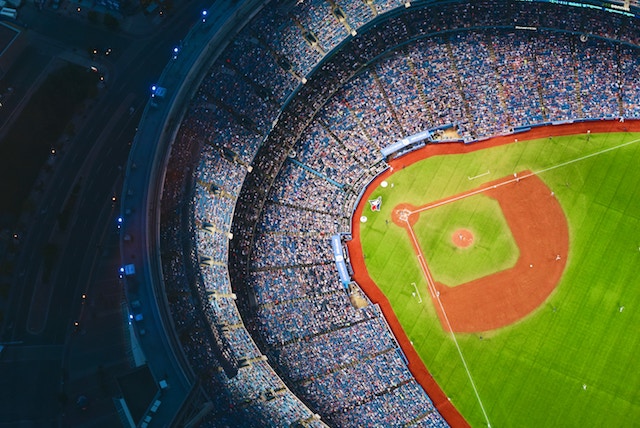
Baseball isn’t the cultural touchstone it once was. Where the sport was once intrinsically tied into the public understanding of America’s values and personality, “America’s favorite pastime” has since become dwarfed by football in terms of popularity. Perhaps it’s that the slower pace of baseball hasn’t kept up with the attention spans of American fans or that the steroid scandal of the 1990s and 2000s did some serious damage. But that doesn’t mean that baseball is dead, and some forward thinkers are examining how the sport, which went largely unchanged for decades, could stay relevant in the next two decades.
The pace of the game is one of the most critical components of keeping it relevant to fans, but the careful line to walk is how the game can be streamlined in a way that doesn’t radically undermine the legacy of the sport. Commissioner Rob Manfred has prioritized pacing as a major component of his tenure. A clock for throwing a pitch – similar to the shot clock employed in basketball – seems like one of the most likely options for keeping the game relevant, but it’s not the only option on the table. Stripping down the number of visits that coaches take to the mound could also prevent the unnecessary downtime in any given game, as could the rules that allow for ties to propel baseball games into extra innings. Undoubtedly, if baseball wants to stay competitive, they’ll take cues from other popular sports to create a snappier experience for fans.
But safety will also become a likely concern. The steroid scandal signified a move towards aggressive performance at any cost, and while that’s in the rearview now, safety is still a point of contention in many American sports. All you have to do is look at the controversy around concussions in the NFL to see that Americans matter and Major League Baseball would be wise to take these concerns into consideration. This could involve simple fixes like safety netting to protect fans in the stadiums from getting hit by stray home runs, but that’s just scratching the surface of the possibilities. Simple solutions like helmets could protect players more effectively, but the future will likely see biometrics that tracks a players’ vitals throughout the course of the game.
Whatever happens, it’s likely that baseball’s future will be iterative rather than radical. It’s a sport in need of updating, but changing the game too much would run the risk of losing sight of what makes baseball unique in its own right.